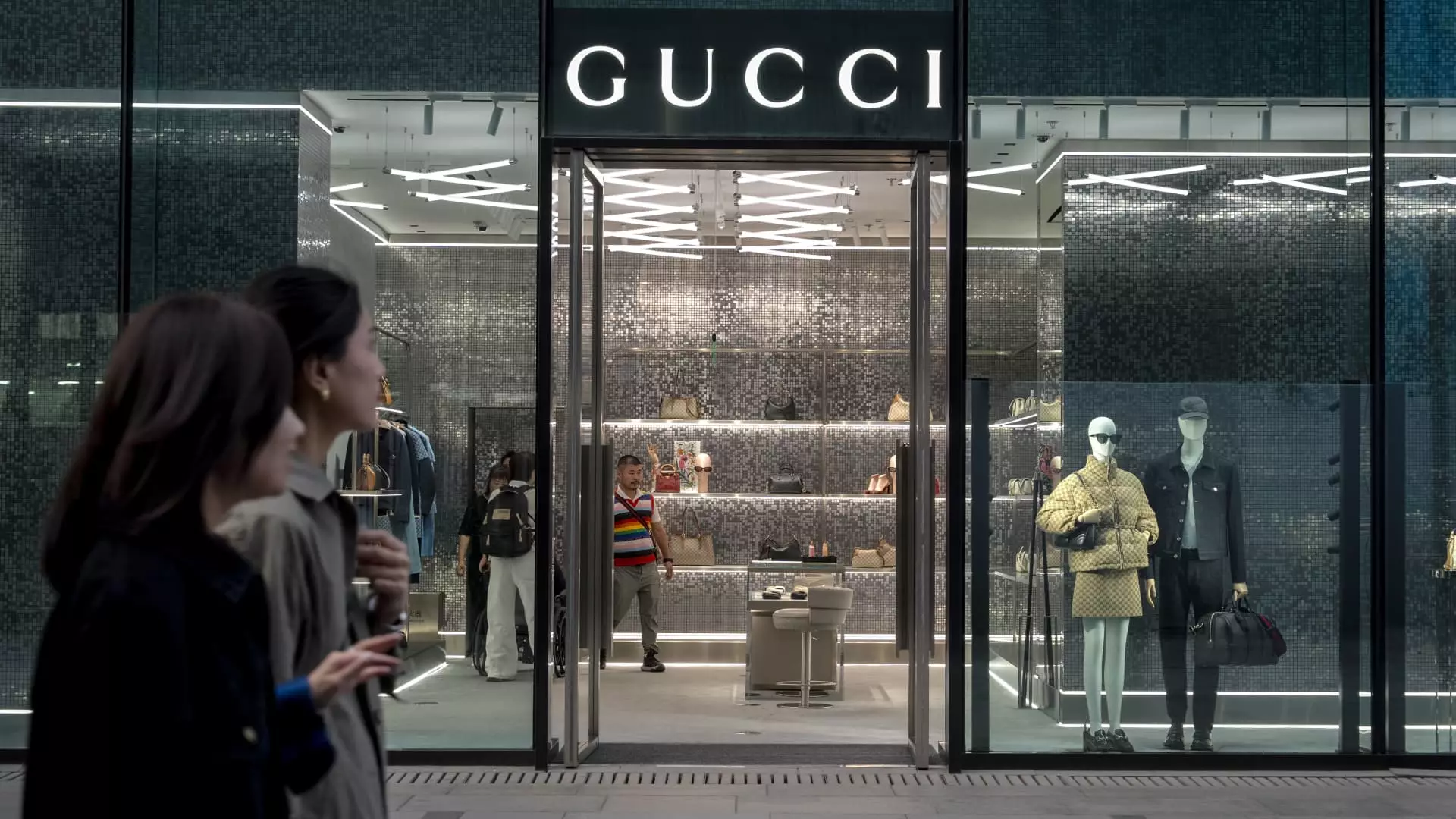The luxury goods sector has shown signs of vulnerability as consumer demand fluctuates, and Kering SA is no exception to this trend. The French-based luxury conglomerate, which oversees prestigious brands like Gucci, Balenciaga, and Bottega Veneta, recently reported its fourth-quarter sales results. While the figures outperformed analyst expectations, they still marked a notable decline compared to previous years, particularly for its flagship brand, Gucci.
Kering’s financial report revealed a 12% drop in fourth-quarter revenues, totaling approximately €4.39 billion ($4.52 billion). Analysts had anticipated slightly lower figures, with predictions sitting at around €4.29 billion, making Kering’s performance appear somewhat favorable in light of a challenging market. However, a deeper inspection of the numbers shows a glaring red flag for its leading brand—Gucci. Sales for Gucci plunged by 24% to €1.92 billion annually, encompassing nearly half of Kering’s overall revenue. The decline represents an alarming trend for a brand that was once synonymous with luxury, signaling an urgent need for strategic revitalization.
Annual figures echo similar woes, as Kering’s total sales also dipped by 12%, summing up to €17.19 billion, slightly exceeding estimates of €17.09 billion. In contrast, operating income sank to €2.55 billion—almost half the previous year’s achievement of €4.75 billion. This trajectory raises questions about the long-term viability of Kering’s current growth strategy, particularly given Gucci’s critical position in the company’s portfolio.
Market Reactions and Future Outlook
Following the earnings announcement, Kering shares initially rose by 6% but cooled down to a modest 0.5% increase by mid-morning London time. This hints at a cautious optimism from investors, yet the prevailing sentiment remains one of guarded skepticism. CEO François-Henri Pinault asserted that in a turbulent year, strides had been made to enhance the long-term appeal of Kering’s brands. However, such assurances must be backed by consistent performance improvements to rebuild investor confidence.
Sales in the Asia Pacific and North America did show slight signs of recovery across Kering’s brands, providing some hope amidst the downturn. However, the lack of detailed regional insights raises concerns about the stability of this recovery. China, a significant market for luxury goods, is particularly critical; consumer spending there has been sluggish, impacting many European luxury goods companies, including Kering.
The Competitive Landscape: Rivals and Industry Trends
Kering is not alone in this struggle. Recently, LVMH, a luxury sector bellwether, also delivered results that fell short of significantly reviving market confidence, underlining the breadth of current industry challenges. While luxury groups are typically buoyed by strong demand for high-end products, economic uncertainties and evolving consumer preferences are proving to be major disruptors.
Moreover, Kering’s reliance on Gucci comes as a double-edged sword. The brand’s recent decline necessitates substantial creative shifts to regain market favor. Just days after the earnings report, Kering announced the departure of Gucci’s design chief, Sabato De Sarno. This reflects the brand’s ongoing struggles and the necessity for strategic recalibrations to reengage its customer base.
Analysts have voiced a mixed outlook on Kering’s future. Simone Ragazzi of Algebris Investments spoke to the expectations surrounding a new design appointment for Gucci and the hope that it might signal a brand reset. Nevertheless, he cautioned that lingering legacy issues could dampen investor enthusiasm. Luca Solca from Bernstein noted that while there are positive indicators regarding operating profits for 2024, the company has a significant battle ahead to return to its prior highs.
The stark year-on-year decline for Kering—an “annus horribilis,” as characterized by analysts—highlights the urgency of its situation. With shares down 2.5% year-to-date and having lost more than half their value since early 2023, stakeholders are watching closely for any sign of a turnaround.
Kering stands at a critical juncture. While recent figures provide some opportunity for optimism, the challenges posed by a shifting luxury market, particularly with a struggling flagship brand like Gucci, necessitate a careful and strategic approach to rejuvenation and brand positioning. The coming months will be instrumental in determining whether Kering can not only stabilize but also reignite growth momentum within a tough market landscape.


Leave a Reply